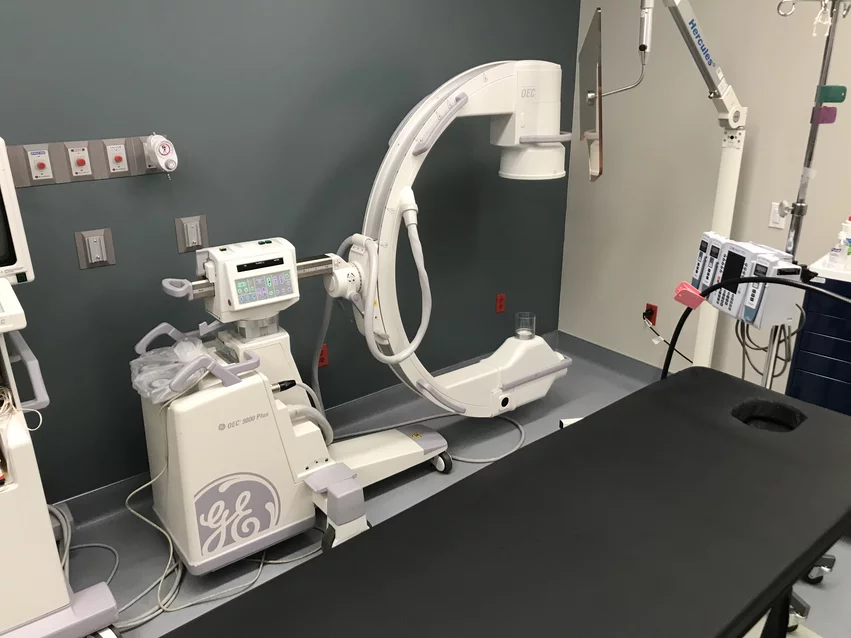Heart Rhythm Society shows support for new cardiovascular board, outpatient EP centers
Heart Rhythm Society (HRS) President Kenneth Ellenbogen, MD, director of clinical cardiac electrophysiology and pacing with Virginia Commonwealth University, spoke to Cardiovascular Business about two key initiatives for 2024-25. One involves the ongoing efforts to create a new, independent cardiovascular medicine board, and the other is focused on the movement toward more outpatient procedures being performed in office-based labs (OBLs) and ambulatory surgical centers (ASCs).
HRS supporting efforts to create an independent cardiovascular board
For more than 80 years, cardiovascular medicine has been grouped under the American Board of Internal Medicine (ABIM) for certification. However, cardiology has evolved significantly over the decades into a clearly defined medical specialty distinct from internal medicine. The effort to create the new board came about mainly because the ABIM testing requirements do not match up with specialized training and work of cardiologists.
"HRS is partnering with the American College of Cardiology, theAmerican Heart Association, and all the other sister subspecialty organizations to try to change recertification so it's not a multiple choice test in front of a computer screen where every single cardiologist who wants to recertify has to take the same test. That's crazy. We all do very different things. Let's take something that improves our ability to take care of patients, improves our competencies and works in the areas where we actually work to take care of patients," Ellenbogen said.
There have been rumblings for years about cardiology possibly striking off on its own to create an independent Board of Cardiovascular Medicine. That effort is now underway with efforts led by the ACC, AHA, HRS, Society for Cardiovascular Angiography and Interventions and Heart Failure Society of America. The proposed independent Board of Cardiovascular Medicine, governed by cardiologists, would facilitate a deep understanding of competencies to ensure high-value cardiovascular patient care. The underpinnings of true lifelong learning and practical skills development proposed by the new board will support clinicians in achieving and maintaining clinical competency, HRS said in a statement about the effort earlier this year.
The American Board of Medical Specialties (ABMS) opened up a public comment period about the potential shift that is scheduled to end in July. HRS and the other societies are urging people to submit comments in support of the new board.
The proposed members for the new board have already been named and include 2023-24 HRS President Jodie L. Hurwitz, MD, as secretary.
Learn more about the effort to create the new CV Board in an interview with Jeffrey T. Kuvin, MD.
HRS supports growing trend of EP procedures in outpatient centers
The second HRS initiative involves supporting policies designed to help expand electrophysiology (EP) procedures to outpatient setting such as OBLs and ASCs. Ellenbogen said this has been a growing trend where routine, low-risk procedures are moving out of hospitals and to these outpatient settings, which can be more cost effective and efficient.
"The society strongly supports the move toward appropriate patients having appropriate procedures in ASCs for all patients who are appropriate for that. It's very important because it allows us to take care of more patients. For many patients, being able to go to an ambulatory surgical center to get a procedure, it's more cost effective and it gives them a better feeling about their procedure, a better experience," Ellenbogen explained.
The trend been seen in coronary and peripheral interventions, spurred by reimbursement policies that have favored OBLs and ASCs because they can offer services at a much lower cost than hospitals. Some hospitals systems have also embraced the creation of their own ASCs to enable more patient volume capacity without the need to build out new cath labs as supporting care areas in the hospital. Some hospitals are sending low-acuity patients with straightforward procedures to ASCs so the main hospitals can concentrate on more complex patients and procedures.
The trend also includes basic EP procedures and efforts are underway to expand the types of EP cases that can be performed in outpatient settings. Ellenbogen said HRS wants to help facilitate this in public policy and reimbursements, as long as there are guidelines to ensure patient safety and quality metrics are preserved.

